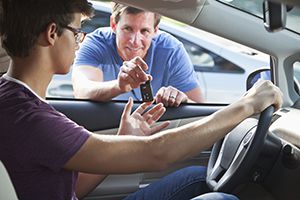CDC Recommends Night Driving Restrictions for Teens
Posted on behalf of Jeff Pitman on August 5, 2016
in Car Accidents
Updated on April 25, 2024
 According to a new report from the U.S. Centers for Disease Control and Prevention (CDC), there would be significantly less fatal crashes involving teens if they were not permitted to drive after 9 p.m. A staggering one-third of teen car accidents that result in death occur at night, and more than half of those occur before midnight.
According to a new report from the U.S. Centers for Disease Control and Prevention (CDC), there would be significantly less fatal crashes involving teens if they were not permitted to drive after 9 p.m. A staggering one-third of teen car accidents that result in death occur at night, and more than half of those occur before midnight.
Most states restrict nighttime driving for teens, but only 23 prohibit driving after midnight. Vermont is the only state that that does not have a nighttime driving restriction.
The CDC argues that midnight restrictions are much too late because most teens are off the road by this time anyway. A more meaningful restriction would be 9 p.m., as most teen crashes occur between 9 p.m. and midnight. Some experts suggest that restrictions should even start at dusk.
Night driving increases risks for all drivers, but teens have a disproportionate risk. Teens have less experience driving, which makes driving at night and dealing with the unique hazards of nighttime driving even more difficult. Drinking and distractions from passengers also increase risks for teens who drive at night.
The CDC also suggests that parents spend time with their children to practice driving at night before they drive alone. It takes many hours of practice to adjust to nighttime driving, which may not occur to parents who are experienced drivers themselves.
In Wisconsin, teens who have their probationary license cannot drive between midnight and 5 a.m. However, there is an exception to this rule if the probationary license holder is traveling between home and school or work. Based on the CDC’s report, it might suggest that this restriction be moved earlier to help keep teens and other drivers safe on the road.
If you have been injured in an accident that involved a distracted or inexperienced driver, our team of car accident lawyers can help.
Call 414-333-3333 today to schedule your free case evaluation.





